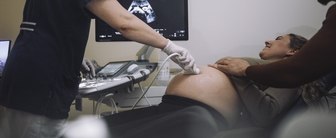Mail-order orthodontics businesses have managed to grab a foothold in the world of telehealth products.
Nearly a quarter of Americans (23%) have considered purchasing mail-order orthodontics from companies like Invisalign and Smile Direct Club for themselves or a family member at some point, according to the results of a YouGov survey for the Cheddar Business channel.
Much like with other telehealth products, the consideration number jumps up when we filter for parents with kids under 18 years old. Nearly half (48%) of this group said they had considered mail-order orthodontics for themselves or their family.
Consideration is different than actually taking the leap. YouGov’s survey found that only 5 percent of Americans had tried mail-order orthodontics, and about 7 percent had a family member that had tried them.
Among this cohort, there seems to be a good amount of satisfaction. Individuals that have personally used mail-order orthodontics report high levels of effectiveness (86%)
The number of people saying that they don’t think the products were effective is just under 10 percent. That changes a bit when you ask how effective people believe the products were for their family members. People were less likely to say that mail-order orthodontics were effective for a family member (72 percent vs. 86 percent for themselves).
As for which companies Americans might order from in the future, Invisalign and Smile Direct Club are at the top of the list. Half of Americans have heard of Invisalign, while more than one-third (36%) have heard of Smile Direct Club. None of the downstream competitors, like SureSmile, SmileLove, ClearConnect, CandidCo. and SnapCorrect, earned more than 8 percent awareness in YouGov’s survey.
Read the full survey here.
Methodology: This survey has been conducted using an online interview administered to members of the YouGov Plc panel of individuals who have agreed to take part in surveys. Total unweighted sample size was 2,620 adults, including 124 who have personally used mail-order orthodontics. Fieldwork was undertaken between 22nd November - 5th December 2019. The survey was carried out online. The figures have been weighted and are representative of all US adults (aged 18+).










